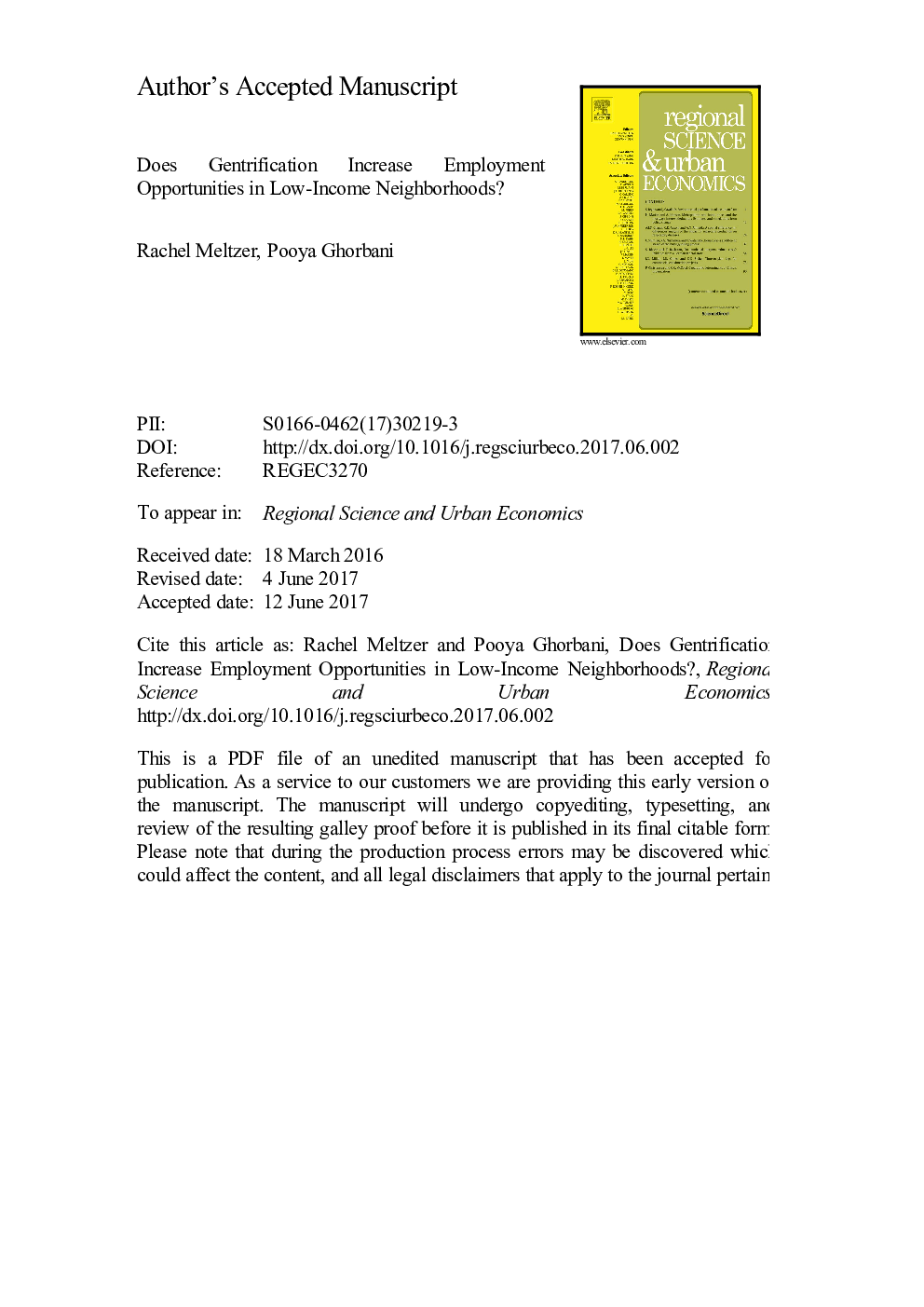| Article ID | Journal | Published Year | Pages | File Type |
|---|---|---|---|---|
| 5103701 | Regional Science and Urban Economics | 2017 | 51 Pages |
Abstract
Gentrification is a term often associated with displacement and other negative byproducts of affluent in-movers altering the economic and demographic composition of a neighborhood. Empirical research on neighborhood change, however, has not produced any conclusive evidence that incumbent residents are systematically displaced under circumstances of gentrification. This raises the question, do these incumbent residents benefit from the economic and social changes that accompany gentrification? In this paper, we focus on low-income neighborhoods undergoing economic transitions (i.e. gentrification) and test whether or not the potential benefits from these changes stay within the community, in the form of employment opportunities for local residents. We find that employment effects from gentrification are quite localized. Incumbent residents experience meaningful job losses within their home census tract, even while jobs overall increase. In our preferred model, local jobs decline by as much as 63 percent. These job losses are concentrated in service and goods-producing sectors and low- and moderate-wage positions. Proximate job losses, however, are compensated for by larger gains in goods-producing and low-wage jobs slightly farther away. There is some evidence that chain establishments are associated with modest job gains in gentrifying census tracts, and that, outside of NYC, businesses that stay in place around gentrifying neighborhoods are associated with marginal job gains.
Related Topics
Social Sciences and Humanities
Economics, Econometrics and Finance
Economics and Econometrics
Authors
Rachel Meltzer, Pooya Ghorbani,
